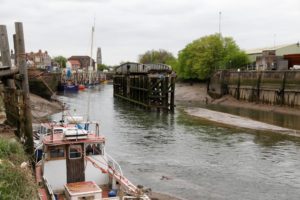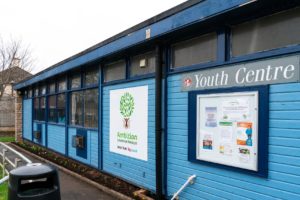Community work is climate work
In Autumn 2019, Camden Alford from the University of North Carolina undertook some research for us on climate change and communities. Here, she shares some findings of her work and considers how communities can become resilient to the challenges of the climate crisis.
When I first started working for Local Trust, my research quickly alerted me to the term ‘climate-ready’. In a nutshell, this means having strategies in place to become resilient to the changes that the climate crisis will bring while working to lower its predicted effect.
For communities, this includes things like changing insulation on buildings to reduce energy consumption, investing in renewable energy sources and working to strengthen local networks in order to protect the most vulnerable members of the community in extreme weather events.
Once I got talking to residents in Big Local areas, I realised that many of them are already doing work to make their community ‘climate ready’.
In November, I travelled to Doncaster for an event on climate change and community responses at Woodlands Speaks, co-hosted by the Institute for Public Policy Research. The week before the event, this part of South Yorkshire had been ravaged by torrential rain and severe flooding, the devastating effects of which local residents experienced first-hand.
Floods have been well documented throughout history, however, most scientists predict that if global temperatures continue to rise, extreme weather events like these will increase in frequency and intensity.
Many Big Local areas are making steps to become better equipped at dealing with this predicted increase in extreme weather – and are in fact in a unique position to do so through the robust community networks and projects they are developing. For example, initiatives addressing isolation and loneliness, investing in local youth and creating programmes for the elderly and vulnerable are all building the community ties that prove invaluable in the event of extreme weather. Additionally, in Big Local areas where green spaces are being protected and trees are getting planted, residents are actively increasing rainwater drainage and improving air quality.
Lots of Big Local areas that were previously lacking communal spaces, now have established community hubs which provide local services and activities as well as valuable meeting places to inform residents about local emergency plans and gathering points during extreme weather events.
Money saving is the motivation behind Big Local areas like Greenmoor in Bradford that are supporting residents to save energy in their homes and in doing so, reducing their energy bills. A few Big Local areas are even building new homes with their funding, ensuring that they are insulated adequately to reduce energy wastage and heating costs. Coupled with the financial benefits of improved insulation, these initiatives are essential to lowering local and national carbon emissions – heating alone contributes to 10% of the UK’s carbon emissions.
Areas are also reducing their reliance on fossil fuels. In Bristol, Ambition Lawrence Weston Big Local have already invested in a solar farm and have an impressive plan in the works to build a community-owned wind turbine that will not only be the biggest of its kind in the city, but will also bring investment back into the local community. And these stories are just the headlines.
Before September, I had little knowledge of Big Local areas and believed the narrative that climate concerns were the reserve of the privileged few. My research has shown me that this is far from the reality; many of the Big Local residents I met were passionate about climate issues and felt ready to act.
More importantly, Big local areas are becoming experts in climate work, simply because it is an issue their community prioritises and the benefits of warmer homes, cleaner air, stronger social ties and better public transport are invaluable to local residents.
In England, the climate crisis will have the biggest impact on poorer communities where resources are already restricted and local capacity compromised. But, because of this, it strikes me that the projects being carried out by Big Local areas could provide a valuable blueprint for these communities around the country to become ‘climate ready’ and face the uncertain future collectively.
Local Trust are commissioning research to understand how communities can thrive in a world threatened by climate change and how we can deliver relevant support for the communities we serve. The invitation to tender for this research is open until 9 March 2020.



